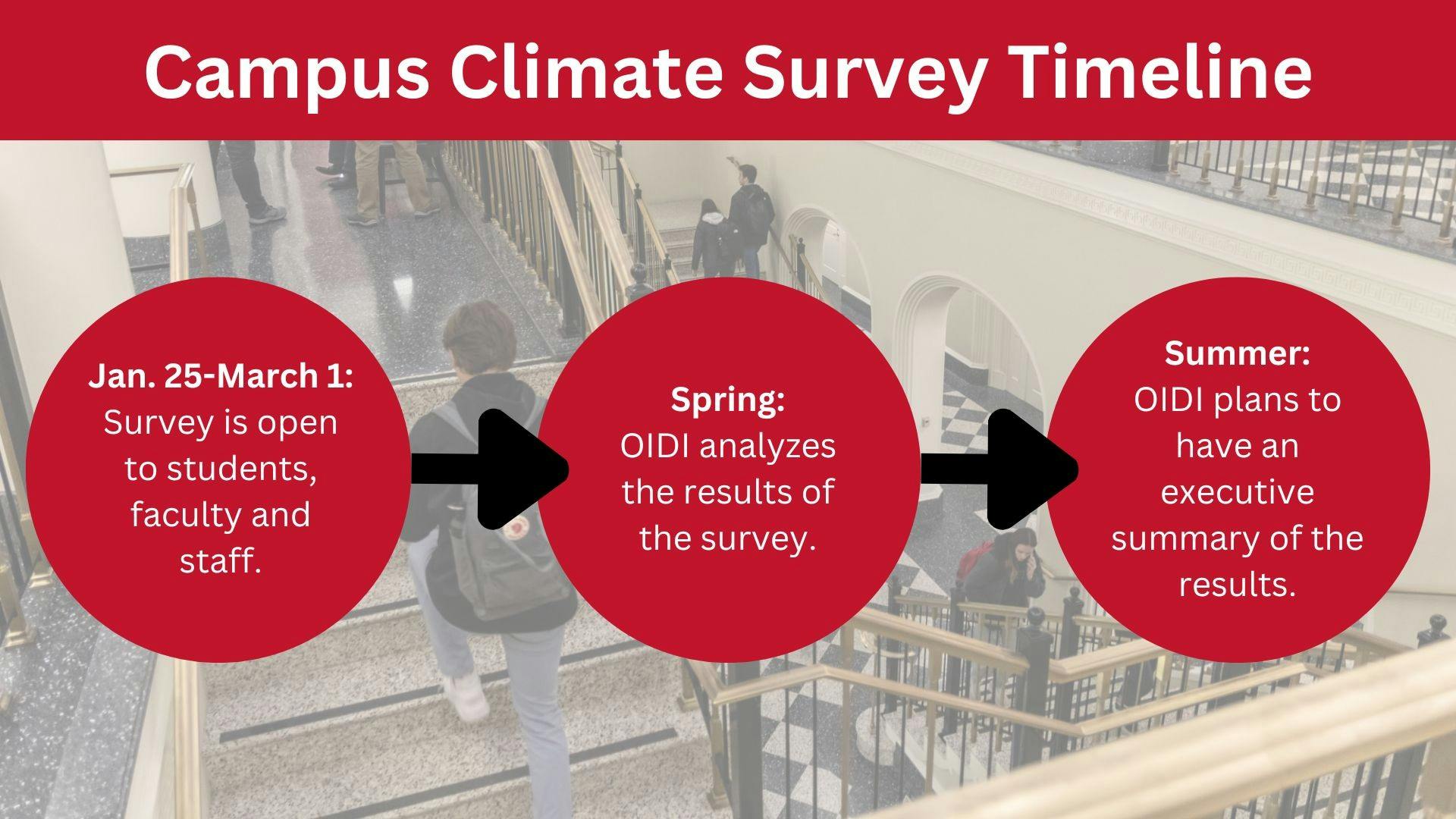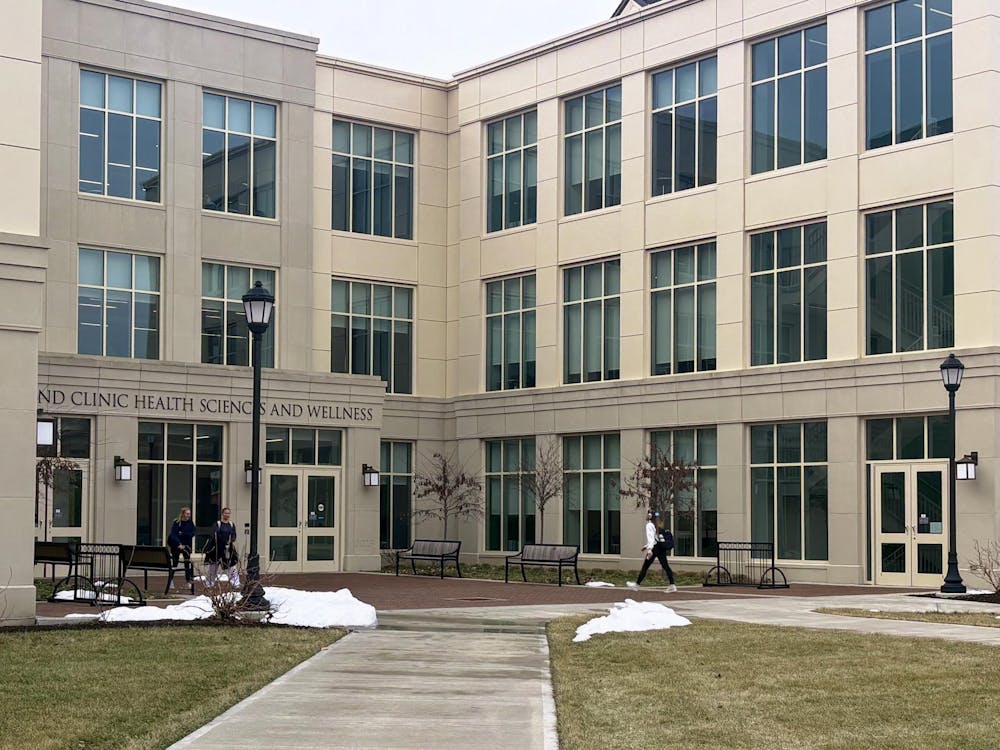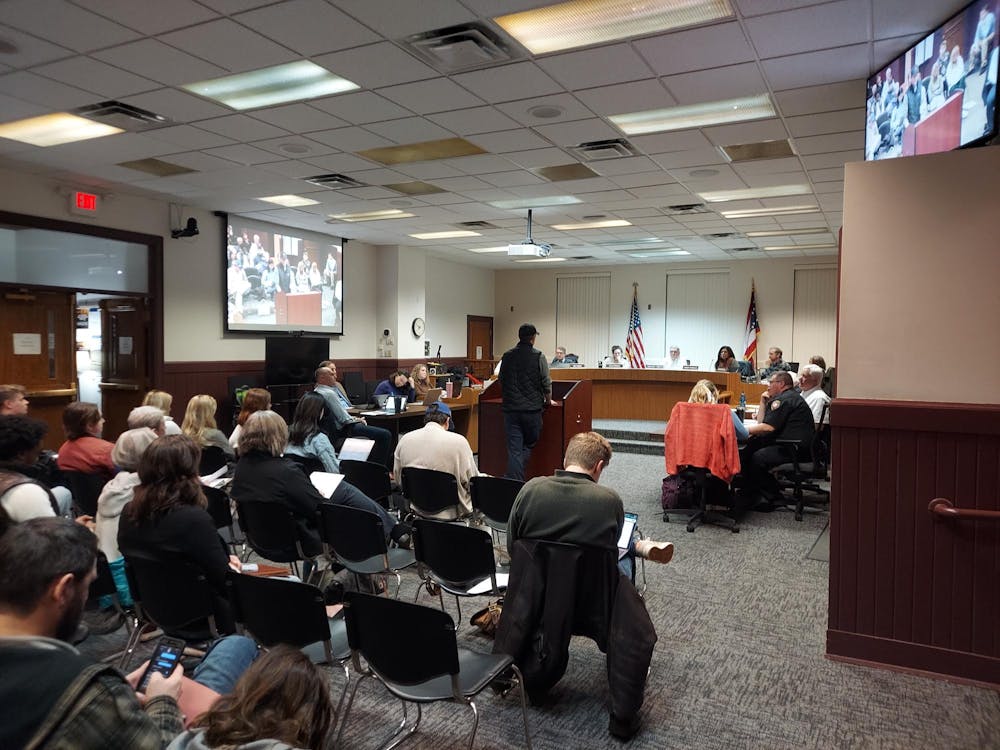Miami students, faculty and staff have been getting the same email for the past month.
“Reminder to take the Miami University Campus Climate Survey,” the subject line reads.
But many Miami community members were left with the same question: what is the Campus Climate Survey?
Evaluating perceptions and experiences
The survey was distributed to all Miami students, faculty and staff and asked questions related to diversity and inclusion. It was conducted by Miami’s Office of Institutional Diversity and Inclusion (OIDI).
The survey which opened on Jan. 25, is now closed. But OIDI is now reviewing the results.
The survey asked questions about the respondent’s major, academic college, how they pay for school and why they chose Miami. It also evaluated the respondent’s thoughts on the city of Oxford.
The survey further asked questions about identities surrounding religion, disabilities and political views. It included identity questions about the LGBTQ+, Black, Indigenous and people of color (BIPOC) and international communities, as well as questions regarding inclusivity in course content and comfortability in classrooms.
The collected data will help OIDI identify areas at Miami that need additional initiatives, programs and actions to represent the community. Cristina Alcalde, vice president for institutional diversity and inclusion, wrote in an email to The Miami Student, that her team hopes to have an executive summary by the summer.
“Data from the survey will help us identify areas of strength and areas in need of improvement,” Alcalde wrote. “Based on information from the survey, we can amplify or develop interventions, initiatives, and programs to reflect our commitment to being an inclusive community for all.”

Enjoy what you're reading?
Signup for our newsletter
Despite its purpose, campus recognition varies
Jacqueline Rioja Velarde has been a faculty member at Miami for 20 years, and currently serves as associate director of the Global Initiatives Center for American and World Cultures (CAWC).
She participated in the university’s last campus climate survey in 2017 and did not notice many differences in the survey itself from six years ago. However, she has noticed the work that has been done at Miami since the last campus climate survey such as the restructuring of OIDI, the new diversity statement and the implementation of DEI in academic departments.
Rioja Velarde works specifically with international students at the CAWC, and she encouraged students to take the survey so the university can become a better place for them.
“I think it is important, not only because of what the institution is going to do with [the results], but because it will reflect in [the students’] personal experience[s],” Rioja Velarde said.
Brooke Noss, a first-year accounting and entrepreneurship double major, said none of her professors mentioned the survey.
“I have nothing against the survey,” Noss said. “I just don’t hear very much about it.”
Noss said she likes the idea of having a survey that evaluates the climate at the university, but she hadn’t taken the survey as of Feb. 22. She thinks Miami could be doing more to increase the visibility of minority students.
“I feel like [Miami] could have more events catered specifically to diversity and inclusion,” Noss said.
Olivia Onyett, a sophomore emerging technology in business and design major, also said that none of her professors have encouraged students to take the survey. However, unlike Noss, Onyett took the survey after receiving an email about it. Onyett also said her resident director encouraged the students that live in her residence hall to take it.
Onyett said it was important for her to take the survey so incoming students can see the results and determine if Miami is a campus that will accommodate them.
“I took it because I know when I was deciding on colleges it was really important for me to see the numbers behind things and see if it was a place I’d feel welcomed at,” Onyett said. “I want incoming students or people who are considering Miami to have the honest numbers too.”
Onyett said it took her about 20 minutes to complete the survey, and she thought the questions were thorough. However, she would like to see the survey conducted more often.
“I think at least putting it somewhere between every other year would be good,” Onyett said. “I feel like six years is kind of a long time to go without doing it.”
Onyett said she hopes one of the changes OIDI makes following the results of the survey is hiring more diverse faculty. She said she has noticed a disparity between the number of male and female professors and professors of color. She also agreed with Noss about the need for an increase in events and programs for students to learn about other identities.
Rioja Velarde said she hopes the OIDI team remembers there is always room for improvement when they evaluate the survey results.
“There is always a space for learning from each other,” Rioja Velarde said. “One of the things that I hope they can emphasize as much as possible is creating spaces of intercultural engagement where we feel that our individual identities are recognized.”
Previous results and what’s next
The 2017 Campus Climate survey had a response rate of 24%, but surveys that were at least 50% completed were included in the final analyses. Of the responses, 69% said they were “very comfortable” or “comfortable” with the climate at the university, 20% said they had personally experienced “exclusionary, intimidating, offensive, and/or hostile conduct” and 54% of faculty and administrators said they had “seriously considered leaving” the university in the past year.
The agency team in charge of conducting the survey analyzed the results, and Miami's President Greg Crawford established a Task Force to implement changes that would create a more inclusive environment at Miami.
In six years, Miami has accomplished a lot to create a more encompassing campus such as the creation of a Cultural Resource Guide and the launching of a new DEI Officers Leadership Council for nonacademic units, but the Miami community has also experienced the aftermath of many national tragedies like the death of George Floyd in May 2020, a mass shooting at a LGBTQ+ bar in Colorado in 2022 and a mass shooting in 2023 targeting Asian Americans celebrating the Lunar New Year in Monterey Park, California.
Alcalde said that this year’s survey includes more questions that better reflect Miami’s community.
“All draft questions were sent out to Miami content and area experts from faculty, staff, and students,” Alcalde wrote. “Questions include topics such as classroom experiences, job satisfaction, and experiences connected with belonging.”
Alcalde wrote that the campus climate survey is just one tool that OIDI is utilizing to help Miami’s campus become more inclusive. A new LGBTQ+ TaskForce will launch this semester, and OIDI is focusing on additional DEI workshops, facilitated discussions and resource development.




